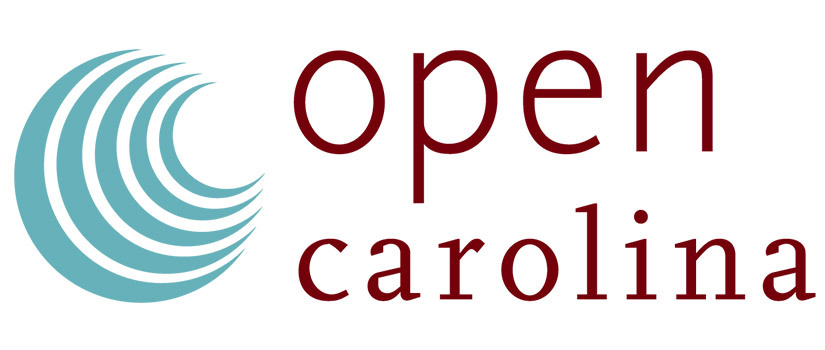The University of South Carolina Press and University Libraries are embarking on a new collaborative venture: Open Carolina, an open-access publishing platform.
Open access is a publication and distribution model that makes academic and professional materials such as books and articles available for free online without paywalls or other restrictions. The idea is that research, much of which is publicly funded, should be accessible to the public, inside and outside the academy. It sounds like a worthy goal, but it also comes with hidden costs for researchers – costs that the new partnership aims to address.
“Open access has always been premised on openness and equity of reading, but it’s always, also, set up barriers to access for creators,” says Michael J. McGandy, director of the University Press. “Someone needs to provide a reasonable amount of financial support to cover the publishing costs that are involved in creating and then disseminating scholarly communication. In many fields, that burden has fallen largely on individual researchers, many of whom do not have the institutional resources to fund open access publication.”
That’s where University Libraries enters the picture. Many ventures into open scholarly resources are planned as temporary pilot operations because they are funded by time-limited grant pools. Thanks to consistent funding from the Libraries, Open Carolina has a sustainable model that will allow scholars with limited publishing funds to share their research via the platform, partially or totally foregoing associated fees. In its inaugural year, the Libraries aim to fund four full-length books and support is in place to make the program sustainable for years to come and allow Open Carolina to grow steadily.
Open Carolina will offer opportunities to a wide range of scholars and researchers regardless of university affiliation. Proposed works will undergo the same intensive peer review and editorial processes as traditionally published books and articles, allowing the university to maintain high standards and join the conversation with other Research 1 institutions that prioritize equitable, open access publishing.
Beyond diversifying the base of authors who can publish open scholarly resources, particularly those without access to institutional subsidies, Open Carolina provides the opportunity to widen the readership of these scholars and researchers.
“It will enable more people to access more works that are particularly interesting or valuable to communities who might not be able to see or interact with this kind of scholarship,” says David Banush, dean of University Libraries. “It broadens the audience and makes scholarship that otherwise would be hidden behind paywalls or other barriers more accessible.”
The increased visibility also stands to benefit the university. Open access journal articles are cited more frequently and read more frequently than those limited to paid subscribers, increasing their potential to shape thoughts and decisions from research to policy matters. McGandy and Banush expect a similar trend to manifest with the longer, book-length works that will form the early foundation of the program.
Longer works, though, may just be a starting point for even more ambitious goals. “I envision an open-ended collection of policy papers and position papers that could affect the provision of public goods in health, or they may influence the formulation of legislation here at the state capitol, or potentially shape national policy developments,” says McGandy. “Open Carolina is a platform that would allow authors to more readily and more effectively share those messages and research to make a difference in the world.”
